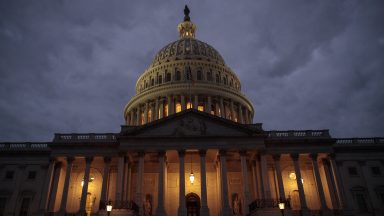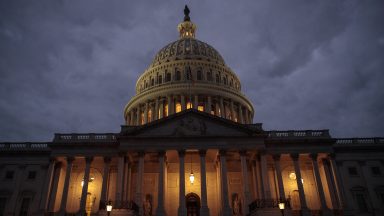
A government shutdown occurs when Congress fails to pass the necessary funding legislation for the federal government’s operations, or when the President refuses to sign such legislation into law.
Here are some of the main reasons why it happens:
- Budget Disputes: Shutdowns often occur when there is a disagreement between Congress members or between Congress and the President on specific spending priorities, such as defense, healthcare, social programs, or immigration policies.
- Political Strategy: Sometimes, shutdowns are used as a political strategy or bargaining chip to push for or against certain legislative measures. One party may use the threat of a shutdown to gain leverage in budget negotiations.
- Debt Ceiling Debates: Although the debt ceiling itself is separate from the budget process, debates over raising it have sometimes led to government shutdowns when an agreement could not be reached.
What Happens If the Government Shuts Down?
Most federal agencies must halt non-essential operations, close national parks, furlough employees, and suspend services until a new funding agreement is reached. Essential services—such as national security, law enforcement, and emergency medical care—continue to operate, but many government activities are paused.
During a furlough, hundreds of thousands of federal employees are placed on temporary leave without pay, while essential workers are required to work without pay until the shutdown is resolved.
A prolonged shutdown can also slow economic growth, impact the stock market, and create uncertainty in both domestic and international markets.
When Was the Last Government Shutdown?
Government shutdowns are not uncommon in U.S. history. Here’s a look at the most recent ones:
- 2018-2019: The longest government shutdown in U.S. history lasted 35 days, from December 22, 2018, to January 25, 2019. This shutdown was primarily due to disagreements over funding for a border wall between the U.S. and Mexico.
- 2018: Earlier in 2018, there was a brief shutdown from January 20 to January 22, mainly due to disagreements over immigration policy, including the Deferred Action for Childhood Arrivals (DACA) program.
- 2013: Lasting 16 days from October 1 to October 17, this shutdown was caused by a standoff over the Affordable Care Act (Obamacare) and budgetary concerns.
- 1995-1996: A significant shutdown lasted from December 16, 1995, to January 6, 1996, driven by disputes over Medicare, public health, and education funding.
#Government #Shutting #Hollywood #Life


